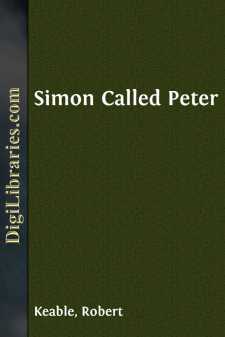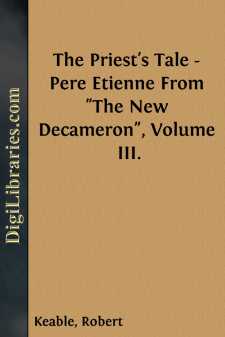Categories
- Antiques & Collectibles 13
- Architecture 36
- Art 48
- Bibles 22
- Biography & Autobiography 813
- Body, Mind & Spirit 142
- Business & Economics 28
- Children's Books 15
- Children's Fiction 12
- Computers 4
- Cooking 94
- Crafts & Hobbies 4
- Drama 346
- Education 46
- Family & Relationships 57
- Fiction 11828
- Games 19
- Gardening 17
- Health & Fitness 34
- History 1377
- House & Home 1
- Humor 147
- Juvenile Fiction 1873
- Juvenile Nonfiction 202
- Language Arts & Disciplines 88
- Law 16
- Literary Collections 686
- Literary Criticism 179
- Mathematics 13
- Medical 41
- Music 40
- Nature 179
- Non-Classifiable 1768
- Performing Arts 7
- Periodicals 1453
- Philosophy 64
- Photography 2
- Poetry 896
- Political Science 203
- Psychology 42
- Reference 154
- Religion 513
- Science 126
- Self-Help 84
- Social Science 81
- Sports & Recreation 34
- Study Aids 3
- Technology & Engineering 59
- Transportation 23
- Travel 463
- True Crime 29
Robert Keable
Robert Keable (1887–1927) was a British novelist and clergyman best known for his controversial works that challenged societal norms of his time. He gained widespread attention with his novel "Simon Called Peter" (1921), which explored themes of war, faith, and sexuality, and became a bestseller, though it was criticized for its frank treatment of religion and morality. Keable, originally a missionary priest, left the church after World War I and moved to Tahiti, where he continued his literary career. His other notable works include "Recompense" (1924), which further explored the complexities of human relationships and personal freedom.
Author's Books:
Sort by:
by:
Robert Keable
CHAPTER I London lay as if washed with water-colour that Sunday morning, light blue sky and pale dancing sunlight wooing the begrimed stones of Westminster like a young girl with an old lover. The empty streets, clean-swept, were bathed in the light, and appeared to be transformed from the streets of week-day life. Yet the half of Londoners lay late abed, perhaps because six mornings a week of reality...
more...
by:
Robert Keable
PÈRE ETIENNE came aboard at Dares-Salaam and did not at once make friends. It was our own fault, however. He neither obtruded nor effaced himself, but rather went quietly on his own way with that recollection which the clerical system of the Catholic Church encourages. We few first-class passengers had already settled down into the usual regularities of shipboard life, from the morning constitutional...
more...



